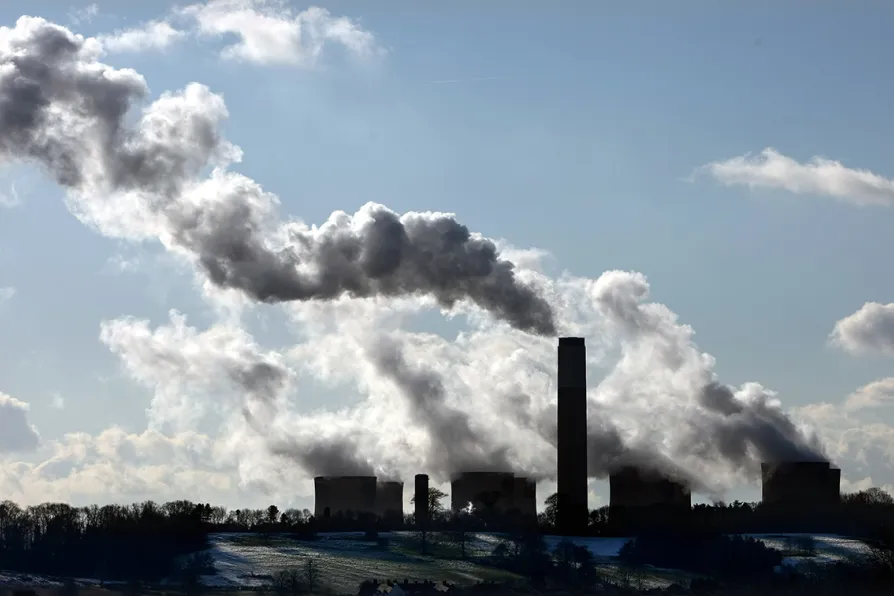
 Ratcliffe on Soar power station near Nottingham
Ratcliffe on Soar power station near Nottingham
NATIONAL plans to tackle the climate crisis fall far short of what is needed to limit global warming to 1.5°C, the United Nations environmental agency has warned.
A report by the UN Environmental Programme reveals (UNEP) a huge gap between the CO2 emissions cuts pledged by countries worldwide and the reductions needed to limit any rise in global temperature to 1.5°C, the internationally agreed target.
Progress has been “woefully inadequate,” the agency said, meaning that only a “rapid transformation of societies” can avert the worst impacts of the climate change.
If current pledges for 2030 are fulfilled, the report warns, the world will still be on track for warming of 2.8°C — described by UN secretary-general Antonio Guterres as “economy-destroying levels of global heating.”
UNEP executive director Inger Andersen said: “This report tells us in cold scientific terms what nature has been telling us all year through deadly floods, storms and raging fires — we have to stop filling our atmosphere with greenhouse gases and stop doing it fast.
“We had our chance to make incremental changes, but that time is over. Only a root-and-branch transformation of our economies and societies can save us from accelerating climate disaster.”
The report calls for global greenhouse gas emissions to be slashed by 45 per cent by 2030.
Responding to the report, Greenpeace Nordic senior policy adviser Kaisa Kosonen said: “Currently, countries are neither preparing for the green and fair transition they promised nor for the world we’re currently heading.
“We’re just speeding towards more climate chaos, human suffering and irreversible losses. We need an emergency response right now.”
Publication of the report coincided with Downing Street confirming that Prime Minister Rishi Sunak will not attend Cop27 conference in Egypt, despite promises to prioritise the environment.
Meanwhile, a Westminster parliamentary committee warned today that critical infrastructure is being put at jeopardy by government failures to prepare for extreme weather events.
A report by the joint committee on the national security strategy said that Britain’s infrastructure, including power, transport and communication networks, was already at risk from such events.
The report highlighted cases of railway track buckling during this summer’s heatwave and damage to power lines caused by Storm Arwen, which left a million people without electricy in north-east England and Scotland.
A “grave lack of ministerial responsibility and accountability” has left a “gaping hole at the centre of government” when it comes tackling the risk to critical infrastructure, the committee said.


















